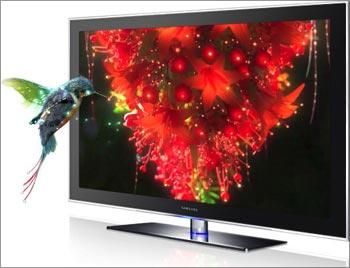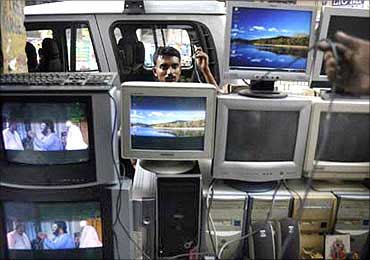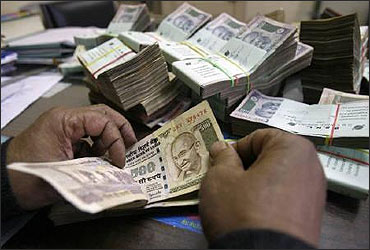 | « Back to article | Print this article |
Buying peace of mind after the SPLURGE
When Vikas Parekh's 32-inch LCD TV stopped working, its panel needed replacing. That alone would have cost Parekh Rs 17,000. Add the service cost and he would have spent more than half the Rs 34,000 he'd bought it for, in the third year of use. Luckily for him, the extended warranty he'd purchased helped save expenses.
"They assured me that they would repair my TV and in the worst case scenario, even replace the panel. Looking back, the Rs 2,000 that the EW cost me turned out to be the best investment I made," says Parekh.
According to consumer durables and electronic goods retailers, one in every four customer now opts for an EW.
"When it comes to high-end white goods or electronic items, the sum total of the parts is always more expensive than a whole new piece. Buying an extended warranty covers this risk and is worth the peace of mind," says Rajan Malhotra, president, retail business strategy, Future Group.
Click NEXT to read on . . .
Buying peace of mind after the SPLURGE
eZone, the Future Group's electronics retail arm, plans to introduce EWs by the end of this month. Croma, the Tata Group's chain of consumer electronics and durables, Next Retail, Hypercity and so on already offer EWs.
EW periods begin no sooner than the manufacturer's first-year warranty ends. Customers can expect their appliance to be repaired or even replaced during the EW period. Those looking to cover risks should also consider EWs offered by manufacturers and annual maintenance contracts (AMCs), if available.
AMCs are offered on items like air conditioners and water purifiers that require regular servicing. The charges could cover just the mechanic's service cost or both service plus part-replacement costs, under a comprehensive cover. AMCs could be offered by both manufacturers and retailers.
Click NEXT to read on . . .
Buying peace of mind after the SPLURGE
"In a bid to differentiate their products from the competition, a few manufacturers have started offering EWs over and above their regular one-year warranty," says Sajit R, COO, Electrolux, P E Electronics, a marketing arm of electronic brands Philips and Electrolux Home Appliances.
Cost analysis
Cost-wise, EWs offered by a retailer are cheaper than those offered by a manufacturer because most retailers might be willing to cut their profit margin to offer customers a price advantage. So, the fee for a year's EW could cost between three and five per cent of the total value of the product for consumer goods and electronic goods. For the second year, costs are between five and eight per cent of the value for consumer goods and electronic goods. At Croma, that translates into paying Rs 180-plus for an EW on a refrigerator, Rs 1,320-plus for a laptop and so on, in the first year.
However, any EW from a retailer works as well and is always more cost-effective than an AMC. For instance, if the AMC charges for water purifiers are Rs 800 for a product costing Rs 6,000, it works out to almost 13 per cent of the cost.
Click NEXT to read on . . .
Buying peace of mind after the SPLURGE
Yet, EWs are governed by the Insurance Regulatory and Development Authority and can only be offered for a maximum of four years, while AMCs can be bought at any time.
Clubbing warranties
Most retailers which offer EWs allow clubbing the manufacturer's EW with that of their own, especially for consumer durables such as washing machines, vacuum cleaners, refrigerators, TV sets and so on. However, they won't be so accommodating when it comes to technology-based products like laptops and mobile phones.
"Most white goods aren't likely to get obsolete as quickly as tech-based products. So, while one can easily avail of genuine parts for the white goods, it may not be the case for mobiles or laptops," says Ajit Joshi, managing director, Infiniti Retail.
Click NEXT to read on . . .
Buying peace of mind after the SPLURGE
Even while buying electronic items, one should opt for EWs offered by a manufacturer, rather than a retailer. Says Joshi, "It is better to go for EWs offered by the company, as it will have a better idea of what parts may or may not be available during the period."
If you are still confused about spending the extra bucks on an EW, consider the cost of repair you might have to bear for the product purchased. For instance, replacing a circuit board for your washing machine could set you back by Rs 2,000 for the part alone, besides the labour charges. Similarly, consider how soon you are likely to replace the product. For instance, If you are likely to often keep upgrading your mobiles, it would be best to avoid buying an EW for it.





